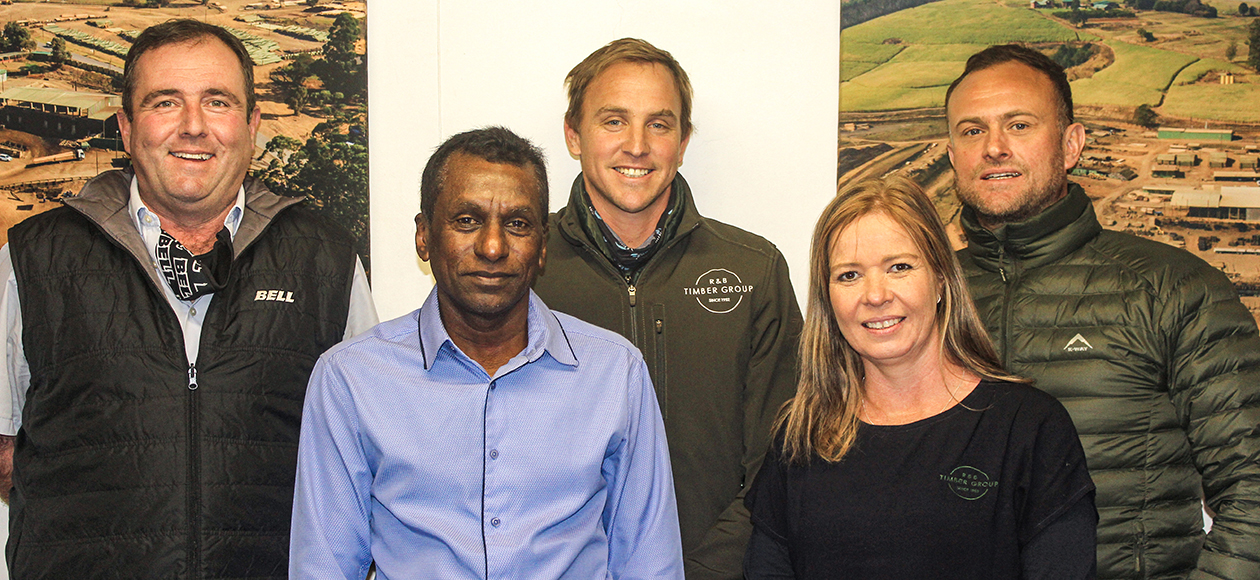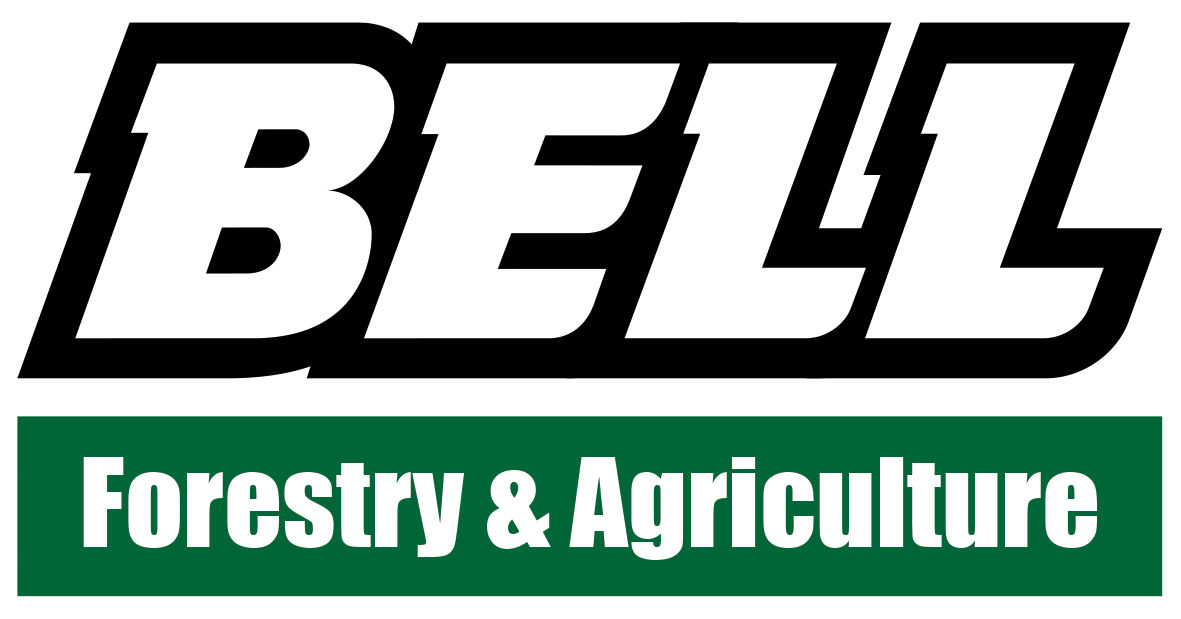R&B Timber Group impressed with quieter F-series Loggers
Published: 29 November 2021

A family-owned business, R&B Timber was established in 1952 by Bob Armour. Today this family business operates at corporate level with his grandson, Simon Armour, as the chief executive officer and the fourth generation being groomed to carry on the proud family legacy.
The company comprises of two timber treatment facilities, Harding Treated Timbers in Harding on the KwaZulu-Natal South Coast and Natal Forest Products in the inland area of Richmond, which have a combined production capacity of 120 000³ per year. In addition to the company’s own 2 050ha of timber plantations in the Harding area, agreements with timber corporates and private farmers secures timber to supply the factories and meet market demand.
Products include fencing, vineyard and netting poles for the agriculture market. As well as building poles. They also specialise in utility and fibre poles used for power lines and fibre optic distribution. Chief Operations Officer, Cliff Gilson said: “The national power utility is traditionally one of our largest customers. We supply decent volumes through their electrical contractor network supplying transmission poles. In addition, there is a good element of export, currently around 30%, primarily into Africa as wooden poles are the most cost-effective way to electrify developing countries.”
Timber is supplied from Forestry Stewardship Council (FSC) certified plantations, production is according to ISO 9001:2015 standards, and finished products are certified by African Certification and Testing (ACT). In specific markets products carry the HardPole™ mark of quality – a 20-year guarantee that gives R&B Timber Group considerable strength in the market.
A whole lot of Loggers
The company’s fleet of 32 Bell Loggers is divided among the plantation operation and the two processing plants. The Loggers in the plants work full eight hours shifts per day, with some units working an extended shift. Currently the machines average 8 000³ to 9 000³ of timber per month with the capacity of doing 10 000³.
The machines have proven themselves indispensable at the plants where they offload trucks of raw material, pack raw material into waiting bays, feed the kilns and treatment plants, stockpile the finished product and load delivery vehicles, either breakbulk or containers.
“Over the years the group has probably owned around 100 Bell Loggers. Since we’ve started buying loggers from Bell, we haven’t introduced any other log handling machinery because we’ve always had a strong relationship with Bell and received good backup. The Bell Logger is a tried and tested machine, and I can confidently say that it’s an industry leader,” said Cliff.
The bulk of the fleet is A-series machines with between 8 000 and 12 000 hours, but some of the older machines have notched up close to 14 000 hours. “We’ve found the A-series to be a strong machine. We’ve been very happy with our Bell 225As but we’ll be phasing them out to be able to standardise on the F-series. The introduction of the 225F has been fantastic. It has set Bell ahead of the pack again,” he added.
R&B Timber has adopted a new policy of replacing Loggers every five or six years or between 11 000 and 12 000 hours rather than the previous policy of five years or 10 000 hours. “We believe at 12 000 hours a machine is still holding good value and is in good condition. It’s a sellable machine but at that age, it’s time to move the unit to a less intensive operation, like loading ad hoc trucks on depots. We know these machines can run far longer but we’ve found in our arduous operation that at 12 000 hours we start seeing metal fatigue, so it’s not just about having to replace engines and wheel motors.”
F-series benefits
To get into the new cycle, R&B Timber Group took delivery of three new Bell 225F Loggers in the first half of 2021 and plans to take additional machines before the end of the calendar year. “Hopefully then we’re in cycle and will replace five to six machines per year,” said Cliff.
Commenting on the F-series, he said: “The lower decibel rating is a massive benefit in our factory environment because we have a huge responsibility to the surrounding residents in terms of noise pollution. It allows us to run a night-time loading operation seamlessly. From a safety point of view, having all the greasing check points at eye-level means operators don’t need to climb onto the boom, and because they get checked more often. It also helps having oil and fuel at eye-level too. Fuel consumption seems to be better. The F-series is a more comfortable machine because there is less vibration through the pedals and the operator can still think at the end of the day due to the reduced noise level.”
R&B Timber’s F-series Loggers have been fitted standard with Matriarch grabs and 16-ply steel belt tyres, which provide better wear in the aggressive plant environment where nails and wire are common hazards. The company has standardised on doors for safety and an anti-theft fuel sieve mechanism.
R&B Timbers makes use of Bell Equipment’s maintenance team during a machine’s warranty period and thereafter their inhouse mechanics take over. “At both plants we have our own mechanics who have been on Bell training. We don’t take short cuts with our machines and use only genuine Bell parts. We run an intricate service management schedule and our machines get serviced on the hour. Our Loggers work hard in a dusty environment, especially in the winter months, but taking the conditions into consideration and our inhouse maintenance team being disciplined about servicing we have very few unexpected costs when maintaining these machines. We get a good life span, and they hold their value, which makes buying a new machine substantially easier.”
B-BBEE and community upliftment
He adds that Bell Equipment Sales South Africa’s Level 1 B-BBEE status had a “massive bearing” on the company’s choice of supplier. “Preferential procurement has a huge bearing on our scorecard. Eskom is a huge customer and there is no way that we can maintain our scorecard if we don’t purchase from Level 1 suppliers, especially those with whom we have a substantial spend.”
R&B Timber is the single largest employer in the Harding and Richmond districts with about 600 staff. A further 300 to 400 people are indirectly employed through numerous stump-to-mill harvesting contracts. As a proudly South African company it supports local business wherever possible and has its own extensive social responsibility programme from assisting staff with school fees to skills development, enterprise development and numerous community outreach initiatives.
“We try to give back wherever we can because we see the benefit, especially operating out of small towns and rural areas where there is a lack of skills and general exposure. As such, we appreciate everything that Bell does to support small communities by engaging with growers and supporting community and sporting events, like farmers days and golf days. We are genuinely proud to be partners with Bell.”
It is evident that R&B Timber Group is living up to its value system termed HEART, by striving towards honour, excellence, accountability, respect and trust. In this way they ensure their purpose is strongly acclaimed and that they can significantly impact the lives of all of stakeholders.

Selva Govender (Director: Natal Forest Products and Operations Manager: Richmond), Simon Armour (Chief Executive Officer), Cliff Gilson (Chief Operations Officer) and Lisa Honneysett (Group Buying Manager)
